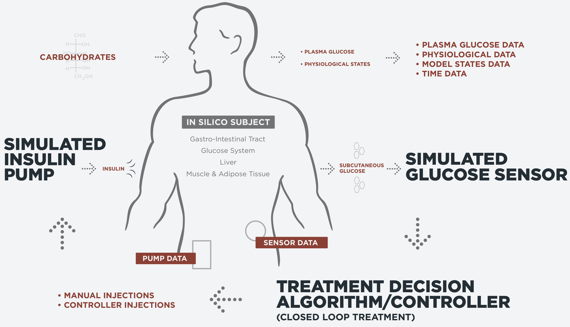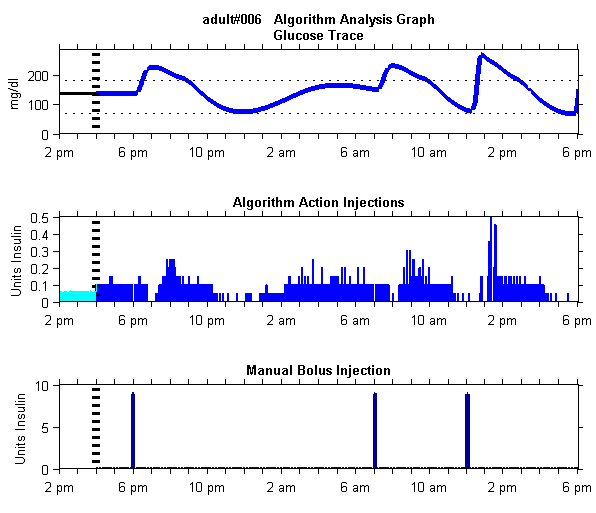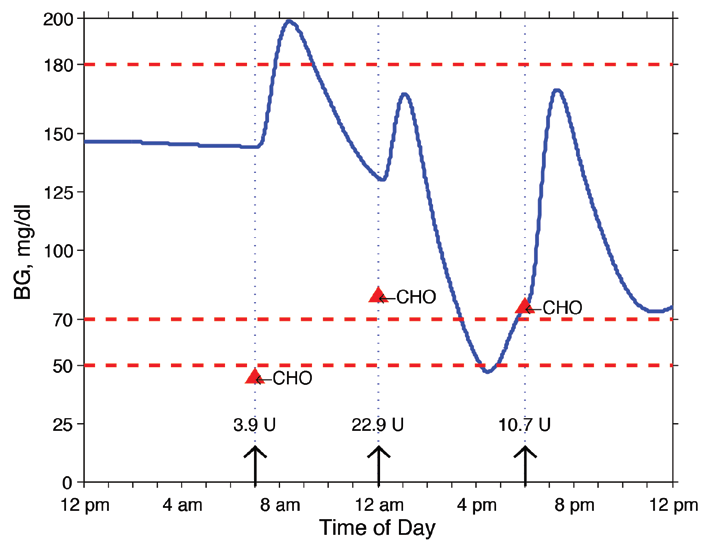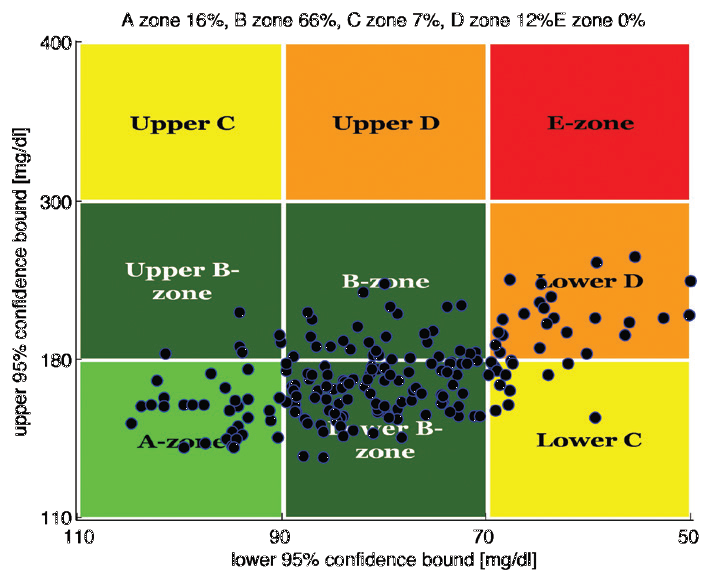Diabetes Simulation
Advantages for Both Industry & Academic Research and Development
The University of Virginia (UVA)/Padova T1DMS allows the user to design experiments which examine and tune control algorithms for insulin dosing strategies and also guide and focus the emphasis of protocol designs for clinical studies.
- TEG’s simulation services and data analyses for commercial entities can lead to improved accuracy and better performance of diabetes monitoring devices in a shorter development time than through traditional processes.
- The test bed includes a large in-silico population of 300 subjects (100 adults, 100 adolescents and 100 children) with the full variability present in persons with T1 Diabetes. This population has been validated against patient responses in a clinical study and accepted by the FDA for pre-clinical IDE approval.
- Scenarios can be designed to model self-management/ lifestyle patterns and/or clinical protocols. TEG will also model treatment patterns that would be more aggressive than what are used in clinical studies, while examining possible limitations of the device or intervention under study.


Insights at the individual level The T1DMS Advantage
Most diabetes models provide only average population-level responses to different treatment strategies based on study cohorts of randomized controlled clinical trials. Pre-clinical testing and experiments using the UVA/Padova T1DMS are conducted at the level of an individual subject providing insight into the intra- and inter-personal differences seen in humans in response to the treatment protocol.
RESULTS FEATURE:
- Individualized, intra-personal results
- Inter-personal differences are revealed across the spectrum of human variation
- Model design that can be identical to a proposed clinical study*
- Individual real-time glucose traces* for visual understanding of insulin-glucose fluctuation
* Population results are calculated from the individual results as in a clinical trial
TEG simulation engineers will work with you to design experiments which optimize control algorithms for glucose measurement accuracy, insulin dosing calculations and also guide and focus the emphasis of protocol design for clinical studies.


